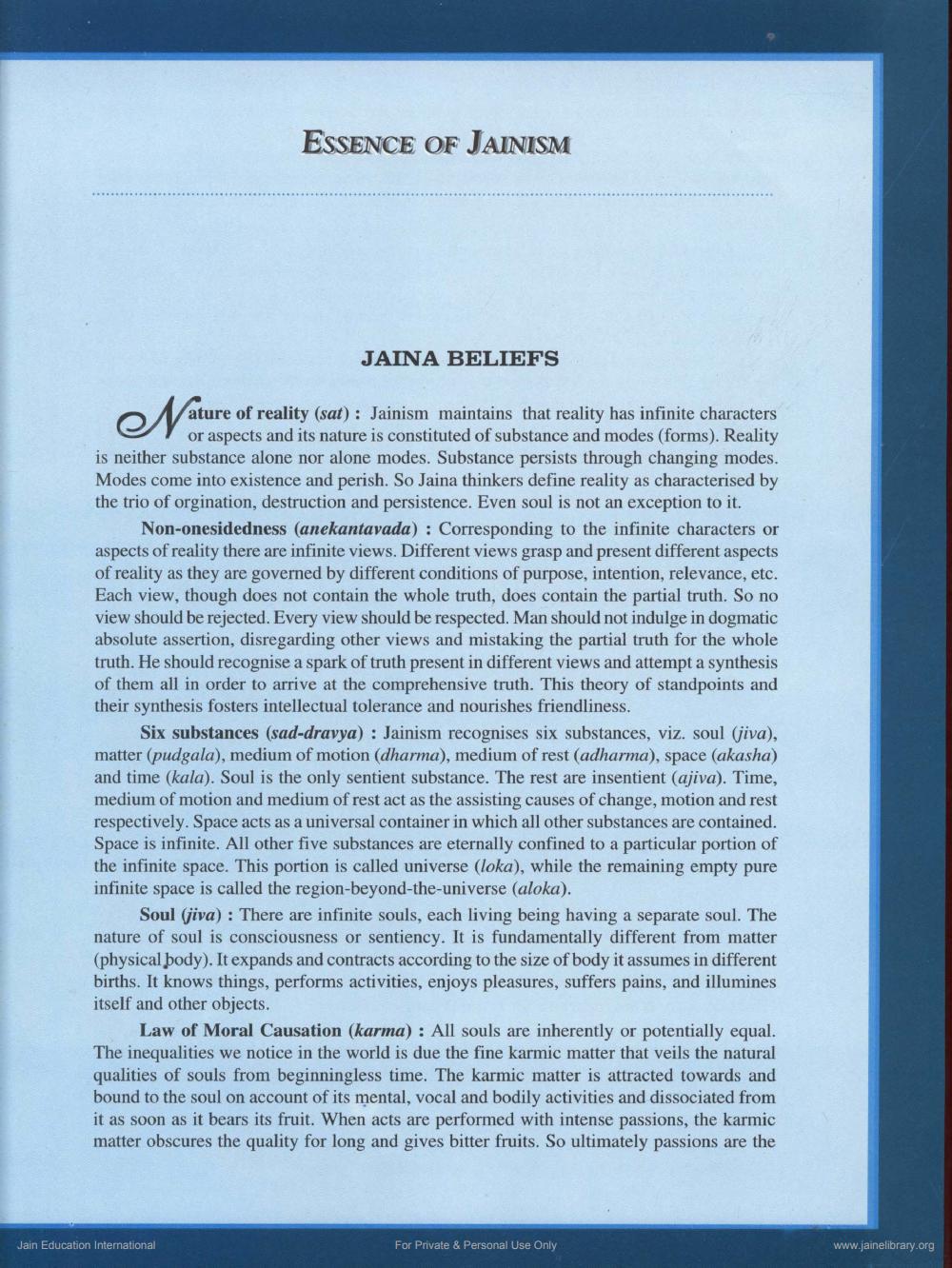________________
ESSENCE OF JAINISM
JAINA BELIEFS
ature of reality (sat): Jainism maintains that reality has infinite characters
or aspects and its nature is constituted of substance and modes (forms). Reality is neither substance alone nor alone modes. Substance persists through changing modes. Modes come into existence and perish. So Jaina thinkers define reality as characterised by the trio of orgination, destruction and persistence. Even soul is not an exception to it.
Non-onesidedness (anekantavada) : Corresponding to the infinite characters or aspects of reality there are infinite views. Different views grasp and present different aspects of reality as they are governed by different conditions of purpose, intention, relevance, etc. Each view, though does not contain the whole truth, does contain the partial truth. So no view should be rejected. Every view should be respected. Man should not indulge in dogmatic absolute assertion, disregarding other views and mistaking the partial truth for the whole truth. He should recognise a spark of truth present in different views and attempt a synthesis of them all in order to arrive at the comprehensive truth. This theory of standpoints and their synthesis fosters intellectual tolerance and nourishes friendliness.
Six substances (sad-dravya) : Jainism recognises six substances, viz. soul (jiva), matter (pudgala), medium of motion (dharma), medium of rest (adharma), space (akasha) and time (kala). Soul is the only sentient substance. The rest are insentient (ajiva). Time, medium of motion and medium of rest act as the assisting causes of change, motion and rest respectively. Space acts as a universal container in which all other substances are contained. Space is infinite. All other five substances are eternally confined to a particular portion of the infinite space. This portion is called universe (loka), while the remaining empty pure infinite space is called the region-beyond-the-universe (aloka).
Soul (jiva): There are infinite souls, each living being having a separate soul. The nature of soul is consciousness or sentiency. It is fundamentally different from matter (physical body). It expands and contracts according to the size of body it assumes in different births. It knows things, performs activities, enjoys pleasures, suffers pains, and illumines itself and other objects.
Law of Moral Causation (karma): All souls are inherently or potentially equal. The inequalities we notice in the world is due the fine karmic matter that veils the natural qualities of souls from beginningless time. The karmic matter is attracted towards and bound to the soul on account of its mental, vocal and bodily activities and dissociated from it as soon as it bears its fruit. When acts are performed with intense passions, the karmic matter obscures the quality for long and gives bitter fruits. So ultimately passions are the
Jain Education International
For Private & Personal Use Only
www.jainelibrary.org




